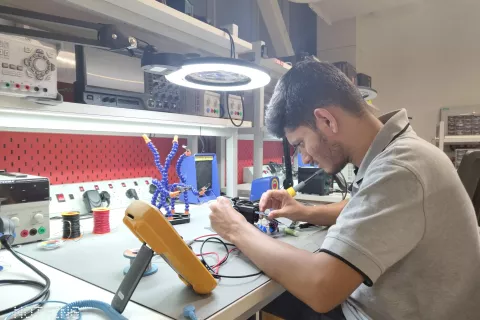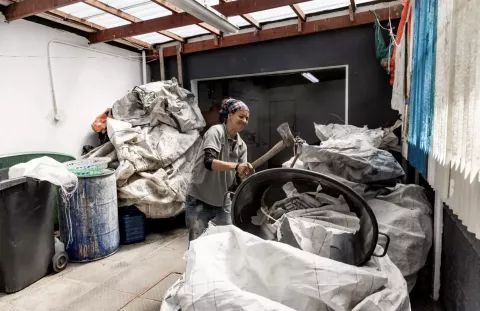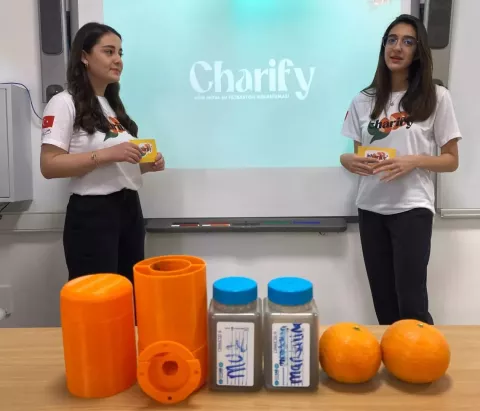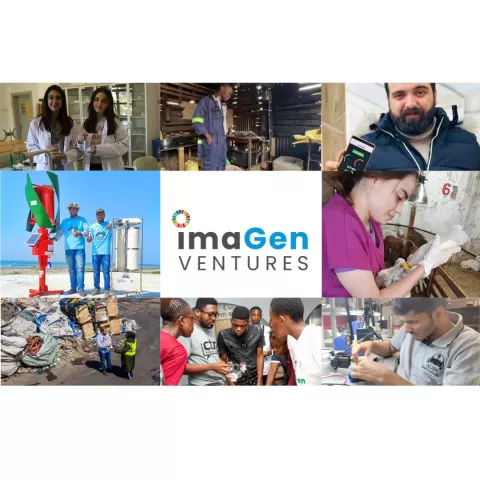Generation Unlimited: Overview and Progress to Date October 2019
Generation Unlimited (GenU) is a global multisector partnership created to meet the urgent need for expanded education, skill development and employment opportunities for young people aged 10-24
About
Generation Unlimited (GenU) is a global multisector partnership created to meet the urgent need for expanded education, skill development and employment opportunities for young people aged 10-24. By bridging secondary-age education and training to employment and entrepreneurship, GenU will support every young person to thrive in the world of work and become productive problem solvers and engaged members of society. Launched one year ago along with the UN Youth Strategy, GenU has generated interest from government and leaders from industry and other key sectors committed to cohere efforts around young people for large-scale impact. By deepening collaboration within the UN System and stakeholders from across sectors – globally and in country – and rethinking public/private partnership GenU has the potential to accelerate results towards Agenda 2030 (i.e. Goals 4, 5, 8, 9, 10 and 17) and help to operationalize the vision and priorities of the UN Youth Strategy.
GenU has finalized its strategy, which outlines a compelling investment case and operating model. GenU initiatives at global and national levels aim to:
- modernize secondary education and training to build the skills young people need for productive lives and work;
- increase and improve the number of quality work opportunities available to youth;
- foster entrepreneurship as a mindset and a livelihood for young people; and
- collaborate with young people as problem-solvers to shape the world they want.
This is achieved by creating public/private partnerships that help to:
- attract investment at global and national levels to support country roadmaps and make effective programmes grow and achieve results for millions of young people;
- scale innovations, brokering investments and shared value partnership in areas such as digital connectivity, remote learning and work, entrepreneurship, job-matching platform, mental health and the green economy, among others; and
- co-create solutions with young people to ensure they are drivers and agents of social change.
Key areas of progress since GenU’s launch
1) Development and Implementation of Country Investment Agendas: Together with government, the private sector, international and local organizations, and driven by young people, GenU has started to design country investment agendas – portfolios of scalable, bankable initiatives and innovations – that attract public-private partnership and investment for better education, skills, entrepreneurship and employment for millions of young people.
In Bangladesh, GenU has been launched under government leadership with BRAC, ILO, UNICEF, the World Bank and private sector partners. The target is to reach at least 7.3 million young people with education, skill development and employment opportunities, and create 1 million apprenticeships by 2030. In Kenya, under the leadership of President Kenyatta and a Steering Committee co-chaired by the President’s Deputy Chief of Staff and the UN Resident Coordinator, GenU is designing investment opportunities for private/public partners and helping to establish stronger links between employers and the education system. In India, GenU is developing a first portfolio of initiatives on skilling and entrepreneurship together with government, private sector and foundations. In Senegal, young people are spearheading the development of a local chapter of GenU. Additional countries of focus for national investment agendas include Rwanda, Mexico, Ethiopia, South Africa and Indonesia and others will follow soon. ILO has expressed interest in playing a leading role on GenU in Ethiopia, Nigeria, Ghana, South Africa and Sri 3 October 2019 Lanka. The UN Global Compact is interested in mobilizing its business networks in countries and support investment fora to promote scalable solutions.
The World Bank committed $1 billion to boost job prospects for young people, in partnership with GenU, which will be leveraged for implementation of country investment agendas with a focus on Sub-Saharan Africa and South Asia. Initial investments are planned in Bangladesh, Nigeria and Tajikistan. GenU is also working closely with the African Union Commission to reach 10 million young people in Africa by 2021, in line with GenU objectives. Discussions are ongoing with the Islamic Development Bank, the African Development Bank and the UN Economic Commission for Africa to support GenU in selected countries. In close collaboration with ILO, UNESCO, UNDP, UNFPA, UNICEF, the World Bank, and a range of private sector and youth partners, the GenU Global team will promote the work of these partners by producing thematic guides to support national policy reform. These guides will showcase promising approaches and policy options in areas such as upskilling, modernization of curricula, entrepreneurship, etc.
2) Innovation at Scale: GenU Global Breakthroughs: GenU Global Breakthroughs are bold innovations that tackle challenges experienced across geographies. GenU is developing and implementing business plans for selected areas of innovation, which will create and source investable opportunities, attract capital, and scale promising approaches across geographies through multisector partnerships. GenU has successfully completed the co-creation of its first business plan on Digital Connectivity with support of Dubai Cares and is working closely with the International Telecommunication Union. Global Breakthroughs on Remote Learning/Portable Certification, Green Economy and Job-Matching are also under development with leadership from partners, including from Microsoft, DSM and SAP, respectively. UNDESA, OECD, World Bank and the New York Academy of Sciences expressed interest in partnership on data and knowledge.
3) Youth Engagement: Youth engagement is central to GenU. Eight young people are on the GenU Board, and young leaders have been invited to join the GenU Leaders and Champions Groups. The global Young People’s Action Team (YPAT), which will act as a sounding board for the GenU Global Team and Global Board, has also been established with an initial 10 members and is being expanded to 20. Country level YPATs will be set up to inform development and implementation of country investment agendas. The second GenU Youth Challenge has been launched as a joint initiative of UNICEF, UNDP, Plan International and the World Organization of the Scout Movement, with support from Irish Aid, targeting over a million youth across 30 countries.
4) GenU Governance: The GenU global partnership is co-chaired by the UN Secretary-General, the President of Trinidad and Tobago and the President of Rwanda and includes Leaders, Champions and Board Members, representing public and private sector, multilateral organizations, civil society and young people, coordinated by a Global Team based in New York. In support of GenU, staff secondments to the Global Team have been received by Unilever, African Union and the International Chamber of Commerce, and others announced by UNESCO, the United Kingdom’s Department for International Development (DFID), and SOS Children’s Villages International. GenU has started the process of establishing an Executive Committee comprised of a small group of partners who advise on and oversee the Global Team and GenU’s catalytic trust fund. The trust fund will be fully operational in October 2019, hosted by the Multi-Partner Trust Fund Office, housed within UNDP. GenU has thus far received financial contributions from Dubai Cares ($5 million) and Irish Aid (€1 million) and The Netherlands has announced its intention to support GenU with €10 million in the course of the next five years. Recent announcement of support also includes a multi million dollar contribution from SAP to redefine the future of work readiness, developing a model to build and strengthen feedback loops between employers, education systems, and young people.




